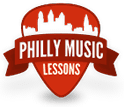
Why All Voice Students Should Take Piano
As a voice teacher, I believe all voice students should take piano lessons as well. Why? I’ll dive into specifics later, but for any music student, piano lessons offer a foundation for music that is difficult to find with other instruments – voice especially. There are unique benefits for singers learning the piano. Some of them may surprise you.
Reading Music
Unlike most other instruments, singers can learn their music without knowing how to read music. It’s easier to pick notes out of the air when the voice does not require pressing a certain key in order to find the pitch. Still, it is more difficult to learn a song without knowing how to read music.
Reading music will enhance your vocal abilities in a number of ways. It can help you to understand your range, and will certainly allow you to pursue more musical opportunities. Plus, your pitch accuracy will grow! Learning music by listening might mean you learn a note wrong because a singer sang it wrong on a recording. Learning notes by reading them and playing them on the piano will allow you to be much more self-sufficient and accurate.
Playing Your Exercises and Accompaniments
If nothing else, voice students should take piano lessons so they know how to play their own exercises. Sure, the internet offers a wide variety of pre-recorded exercises, but the voice is such a unique instrument, many singers need to be able to customize their exercises, especially in terms of range. Being able to play the piano will allow you to do this.
Furthermore, if you’re interested in accompanying yourself (or even becoming a music teacher one day), you’ll need to learn piano in order to do so. Some genres require different piano skills, such as understanding chord progressions. With the above said, make your goals clear when starting piano lessons.
Future Endeavors
Some students take music lessons just to enjoy themselves, and that’s great! Others, however, have longer reaching musical goals. If one of these goals includes studying music in college, for example, music schools expect all students to have a basic understanding of piano. If you don’t study piano in your younger years, a college will require you to take courses then. Might as well get ahead of the curve and start studying now!
If you do have big goals, being able to learn your own musical parts or accompany yourself will also save you time and effort when it comes to rehearsing with other musicians. A coach, for example, won’t have to teach you a song note by note. Or, if you have interest in becoming a singer-songwriter, knowing how to read music will also teach you how to write music down.
Voice teachers do not require students to take piano lessons by and large, but all voice students should consider taking piano lessons if possible, no matter their goals. I have never heard a singer say they felt their piano studies did not help their vocal goals! I have, however, heard singers say they wish they began studying piano much earlier than they did. If you’re interested in piano lessons in addition to your voice lessons but are pressed for time or funds, there are solutions. See if you can’t balance out the two studies by scheduling shorter or alternating lessons, or get in touch with a music school to see what options you might have.
Kristen Seikaly
I teach voice. I started singing at a young age, first with school and community choirs, followed by high school concerts and musicals. I received my Bachelor's of Music at the University of Michigan in Vocal Performance, with a minor in French. Then, I earned my Master's of Music at Westminster Choir College in Voice Performance and Pedagogy. After my second degree, I moved to Philadelphia to pursue performance and teaching opportunities. I have performed in various Philadelphia venues including The Kimmel Center, The Academy of Music, and The Cathedral Basilica of Saints Peter and Paul. I have also participated in operatic productions with companies such as Opera Philadelphia, the Delaware Valley Opera Company, and Princeton Opera Alliance. I believe voice lessons should provide a thorough technical, musical, and emotional understanding of one’s voice. Comfortable singing always comes first, which begins with breathing and posture. I balance imagery and fact based on how a student learns and understands. Singing is joyful amongst all else. While I urge all of my students to reach certain technical goals, my main goal is to make sure the student is always achieving their personal goals and enjoying themselves at the same time.
